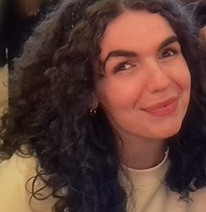Technical Support Staff

Associate Scientist

Kim Savelkouls
(Group Rouschop/Kampen)

Jolanda Piepers
(Group Vooijs)

Tessa Welbers
(Group De Ruysscher)

Reitske Borman
(Group Vooijs)
Group Marc Vooijs

Somaieh Ahmadian
PostDoc


Mike van Heumen
PhD student

Marloes Jonkhout
PostDoc

Annemarie Westheim
PostDoc


Rui Zhang
PhD-student
Group Kasper Rouschop

Tom Keulers
Senior Scientist
Jinzhe Ju
PhD-student


My project focuses on extracellular vesicle biogenesis. We aim to uncover the mechanism and key factors involved in this process under hypoxic conditions. To navigate through the uncertainties, we employ various molecular cell biology techniques, as well as high-resolution microscopy for image processing and analysis of fixed or live cells.
Joël Beaumont
PhD-student


In my project, we investigate how cancer cell derived extracellular vesicles (EV) contribute to tumour progression. EV are small membrane particles which contain a variety of proteins, lipids and nucleic acids which are secreted for inter-cellular communication. We demonstrate their involvement in various hallmarks of cancer, including the induction of angiogenesis, metabolic reprograming and the development of metastases. Understanding the role of EV in these processes could uncover new therapeutic targets to suppress tumour progression.
Lydie Barbeau
PhD-student


Most solid human tumors contain regions that are poorly oxygenated. Tumor hypoxia is a very heterogeneous and dynamic feature and is associated with a more aggressive phenotype due to increased resistance to chemo- and radiotherapy. Essential for the survival of hypoxic cells, is the activation of autophagy. We study the relevance of clinically available drugs to elevate autophagy-dependence of hypoxic tumor cells, to then increase therapeutic benefit in glioblastoma.
Group Kim Kampen

Judith Hounjet
PostDoc

Anaís Sánchez Castillo
PhD-student
Group Dirk de Ruysscher

Rianne Vaes
PostDoc
Shaowen Lyu
MD, PhD-student


I mainly focus on the irradiation-induced immune response in non-small cell lung cancer, including how the dendritic cells behave in lung tumor environment during treatment, differences of immune responses induced by photon and proton irradiation on lung cancer cells and a novel patient-derived ex vivo prediction culture model to predict treatment responses of clinical patients.
Students year 2024-2025

Esmee Steijns
(Group Rouschop)

Bartosz Olaszkiewicz
(Group Vooijs)

Anna Zografaki
(Group Vooijs)
